The Intention of the GTM Ben Steinberg Young Composer’s Award
-
To encourage gifted young Jewish composers to create worthwhile and appealing music for Jewish worship and Jewish concert programming;
-
To encourage the composition of musically literate, Jewishly appropriate musical settings which will be of lasting, practical use for religious services or concert performances, following the compositional form and design to be announced each year;
-
To encourage Jewish communities throughout North America and beyond, to listen to, perhaps participate in, and above all to value Jewish musical expressions of quality which are reflective of its own time.
The Intention of the GTM
Ben Steinberg Young Composer’s Award
-
To encourage gifted young Jewish composers to create worthwhile and appealing music for Jewish worship and Jewish concert programming;
-
To encourage the composition of musically literate, Jewishly appropriate musical settings which will be of lasting, practical use for religious services or concert performances, following the compositional form and design to be announced each year;
-
To encourage Jewish communities throughout North America and beyond, to listen to, perhaps participate in, and above all to value Jewish musical expressions of quality which are reflective of its own time.
Composition Requirements
The 2025 requested work is a pieces (or pieces) 4 – 8 minutes in duration for an advanced volunteer SATB choir, a cappella (with rehearsal keyboard) or with keyboard accompaniment. The piece(s) may include a cantor solo and can include the addition of a single instrument. Texts should be taken from the writings of an Israeli poet, must be in Hebrew, and may include English. Because of the length of the requested work(s), and in our attempt to create new music that is suitable in today’s synagogue and by other musical institutions including advanced high school and university level choirs, an option for applicants to consider is submitting two pieces that can be performed grouped together or on their own as individual pieces. While we encourage applicants to explore using Jewish modes and traditional nusach in their work, we will be looking at how pieces demonstrate sensitivity to text settings and combines accessibility and sophistication. Applicants should consider one or more of the following musical approaches/techniques: use of counterpoint, interesting rhythmic idea, and innovative interplay of the voices and/or harmonies.
- Scores must be notated in full by the composer and contain all necessary dynamics, tempi, etc. (chorded “charts” or tapes are unacceptable). Composers must submit pdf files of their scores (with the composer’s name appearing only on the first page of the score) and a recording of a live performance or MIDI rendition of their submission.
- Candidates may submit more than one entry in any given year. A previous winner of the award may submit new work in future years, but no candidate may win the award more than twice.
- Submitted pieces must not have received an award in any other competition and be unpublished at the time of the scheduled performance.
- The jury reserves the right not to award a prize in any given year, or to declare co-winners and/or honorable mentions.
- Applicants should be Jewish composers from any country, at least 18 years of age by the submission date, and born on or after January 1, 1989.
Composition Requirements
The 2025 requested work is a pieces (or pieces) 4 – 8 minutes in duration for an advanced volunteer SATB choir, a cappella (with rehearsal keyboard) or with keyboard accompaniment. The piece(s) may include a cantor solo and can include the addition of a single instrument. Texts should be taken from the writings of an Israeli poet, must be in Hebrew, and may include English. Because of the length of the requested work(s), and in our attempt to create new music that is suitable in today’s synagogue and by other musical institutions including advanced high school and university level choirs, an option for applicants to consider is submitting two pieces that can be performed grouped together or on their own as individual pieces. While we encourage applicants to explore using Jewish modes and traditional nusach in their work, we will be looking at how pieces demonstrate sensitivity to text settings and combines accessibility and sophistication. Applicants should consider one or more of the following musical approaches/techniques: use of counterpoint, interesting rhythmic idea, and innovative interplay of the voices and/or harmonies.
- Scores must be notated in full by the composer and contain all necessary dynamics, tempi, etc. (chorded “charts” or tapes are unacceptable). Composers must submit pdf files of their scores (with the composer’s name appearing only on the first page of the score) and a recording of a live performance or MIDI rendition of their submission.
- Candidates may submit more than one entry in any given year. A previous winner of the award may submit new work in future years, but no candidate may win the award more than twice.
- Submitted pieces must not have received an award in any other competition and be unpublished at the time of the scheduled performance.
- The jury reserves the right not to award a prize in any given year, or to declare co-winners and/or honorable mentions.
- Applicants should be Jewish composers from any country, at least 18 years of age by the submission date, and born on or after January 1, 1989.
The Award
The Award
Qualifications of Candidates
Applicants should be Jewish composers from any country, at least 18 years of age by the submission date, and born on or after January 1, 1989.
Qualifications of Candidates
Applicants should be Jewish composers from any country, at least 18 years of age by the submission date, and born on or after January 1, 1989.
Criteria For Selection of Winning Entry
Criteria For Selection of Winning Entry
Submission Directions
Submission deadline for pieces: NO LATER THAN Wednesday, July 31, 2024 at 11:59 pm, pacific standard time.
If further questions arise, please submit any questions to Dr. Alan Mason, GTM Vice President of Special Programs.
Submission Directions



